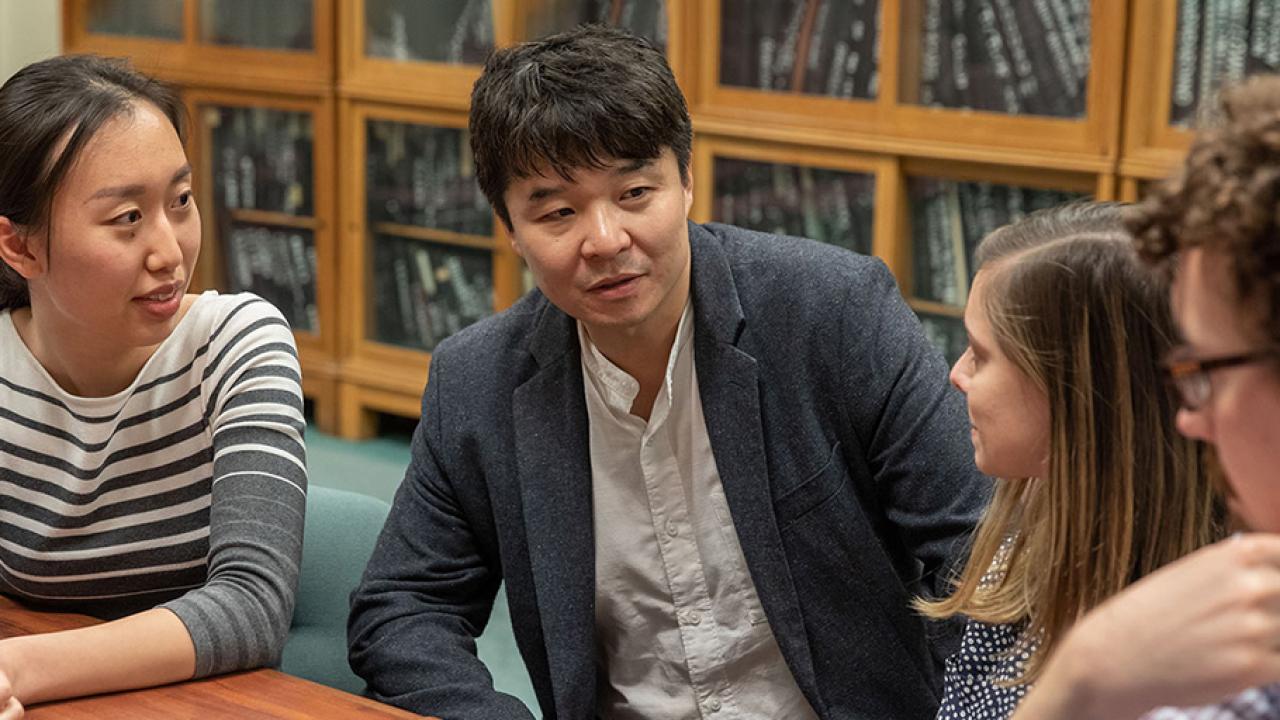In the room with her is a speech language pathology graduate student, a neurology PhD student and her mentor, Yune Lee, assistant professor in the Department of Speech and Hearing Science. This is the Speech, Language and Music Lab. Or, as they call it, SLAM Lab.
The entire team is focused on improving an app, called TheraBeat, that Guo has spent her three years in SLAM Lab developing as a tool to help speech and cognition recovery in stroke victims. Far from theoretical, the team has already witnessed TheraBeat’s benefits through an early clinical trial with one stroke victim.
“Seeing her progress really left me inspired,” Guo says. “After the first trial ended and we saw the effect it had on her, I was astonished.”
And it all started with brainstorming sessions similar to these.
Guo finally stands at a dry erase board and begins drawing horizontal lines with vertical markers to represent beats; she writes words and phrases at the bottom of each vertical mark. Before long, the board looks like the opening bars to a song — fitting, considering everyone in the room shares a musical background.
“When I joined SLAM Lab, I found students who had the same interests I did: love for music and a drive to help people,” says Guo, who originally joined SLAM Lab because of her interest in psychology and a love for the violin.
On this day, the group is improving the TheraBeat app. On another day, they could be meeting up for a jam session or hanging out at someone’s house.
It is late spring 2019. In about a month, Guo will graduate and say goodbye to her friends in SLAM Lab, leaving for a job in Richmond, Virginia. It’s a family she’s known since she was introduced to Lee her sophomore year.

